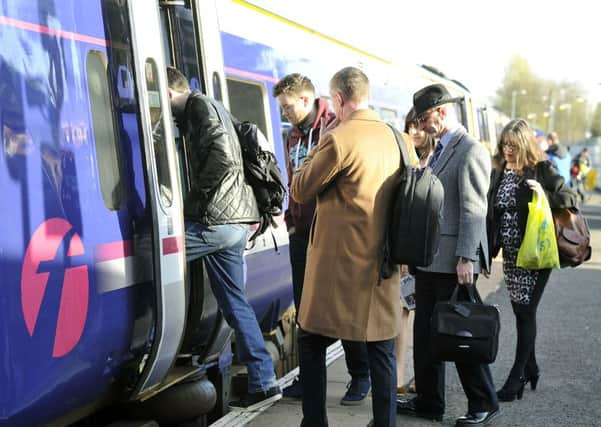Staying connected while commuting in Scotland


With 40 per cent of people now commuting, according to a survey by Lloyds Banking Group, it can also be the most boring part. But here are some companies making the commute a little less painful, with access to free WiFi
Trains
Scotrail has announced that over the next three years, it will be installing free wifi on all it’s train routes. The service is currently available on 18 different routes, but it can be spotty at best with commuters complaining about loosing signal in key routes such as Glasgow-Edinburgh. This is due to it currently relying on picking up a 3G signal from ordinary commercial phone masts outwith the railway which is then “forwarded” to passengers via the on-board wifi system. The Scottish Government has invested more than £4.4 million to upgrade this system.
Advertisement
Hide AdAdvertisement
Hide AdAbellio has already committed to rolling out free wifi on all ScotRail trains by the end of 2018, but the Dutch rail firm now says it wants to upgrade the service so that it is less likely to cut out.
For Virgin Trains East Coast you can access WiFi in all their carriages, but it’s only free for all First Class customers. If you’re in Standard Class you can enjoy 15 minutes free, but after that time’s up it will cost you £4.95 per hour or £9.95 for 24 hours.
Buses
Stagecoach cover many popular commuter routes across Scotland, and many of them now offer free WiFi access.
One of the most popular routes is the Glasgow Edinburgh commute and the Citylink 900 services all have internet access. The longer haul buses which serve Aberdeen and Inverness on the Citylink Gold will also keep you covered.
In the north of the country, Stagecoach say that their WiFi services is really popular, as in the rural locations, 3G is often unavailable. There are 15 different routes which have WiFi access, including those between Inverness and Aberdeen.
Many of the newer express buses connecting Fife have WiFi access, including St Andrews to Edinburgh or Glasgow.
In Glasgow and Edinburgh, local bus services run by First and Lothian, have introduced free on-board WiFi on over 80 per cent of their services. The Edinburgh trams have all also been equipped with the service.
Mobile
If all this fails, most of the UK is now covered by mobile internet. There is 2G, 3G and 4G covereage available across most of the UK.
Advertisement
Hide AdAdvertisement
Hide Ad2G networks were designed primarily for voice and text, and are what your mobile phone conversations and text messages use to get from A to B.
3G networks are a progression from 2G and are primarily designed for data transfer. Standard 3G is capable of speeds up to 2Mb.
4G is the latest generation of mobile broadband and allows for speeds in excess of 20Mb.
EE
Covering a huge swathe of the UK, EE has 2G and HSDPA 3G rolled out to the majority of the UK. Its 4G coverage is expanding rapidly and is projected to offer 98 per cent coverage by 2015.
O2
Now network sharing with Vodafone, their combined 3G network covers most of the UK population and is entirely HSDPA. They began the rollout of their combined 4G network in August 2013, claiming they will have 98 per cent indoor 4G coverage in the next few years.
Three
Their 3G network covers 97 per cent of the UK population, all of which is HSDPA. It began its 4G rollout in 2014, with 98 per cent UK coverage planned by the end of 2015.
Virgin Media
Uses the EE network - see above.
Vodafone
See O2.